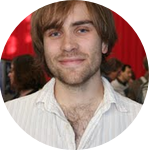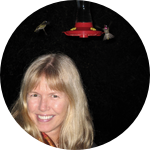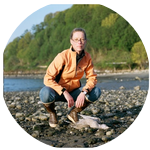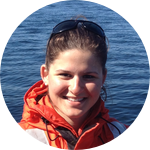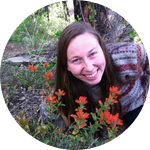Project Results
We present an assessment of the Engage program, a graduate-student-created and led training program at the University of Washington. Using a pre-course/post-course study design, we examined student ability to deliver a short presentation appropriate for a public audience. Based on both self-assessments and assessments by external reviewers, we show that Engage trainees had an increase in their ability to employ effective communication techniques.
About This Project
Science can change the world, but only if it is communicated effectively to the public and policy makers. To help scientists better explain why their research matters, we created a communication training program for science grad students. We want all science grad students to have access to communication training. To overcome the critical roadblocks, we will evaluate the benefits of communication training to the careers of our students.Ask the Scientists
Join The DiscussionWhat is the context of this research?
Not all scientists are natural communicators like Carl Sagan, Sylvia Earle, or Neil de Grasse Tyson. Scientists need communication training, and this research will help provide it.
Who are we?
We are a group of science graduate students at the University of Washington. But we are also entrepreneurs: Four years ago, we created the Engage Program—a graduate level course that trains students to be better communicators, and gives them real world experience practicing that training through a speaker series at Town Hall Seattle.Why are we doing this?
We were lucky—our institution and advisors believed in our mission and provided the support to make the Engage Program happen.Many science graduate students aren't as lucky as we were. Advisors often don’t want their students spending time on communication, fearing it will take time away from research. Many universities don’t offer science communication courses at all—they don’t see the return on investment.
With this research, we will provide evidence that there is a return on investment. Time graduate students spend learning to be better communicators improves their careers and the mission of their institutions. This evidence can be used to support the growth of science communication training programs at universities nationwide.
How exactly does communication training benefit scientists?
A leader in the field of science communication and also an endorser of this project, Nancy Baron, wrote a Nature comment explaining:“Sharping communication skills also has value beyond increasing public understanding. It can breach interdisciplinary boundaries within science and help colleagues with different viewpoints capture a glimpse of a bigger picture. Being a good communicator is not a tradeoff. It makes you a better scientist.”
Intuitively, this makes sense to many scientists and communicators. But now we need the data to prove it.
What is the significance of this project?
“With the knowledge of science we can solve resource limitations, cure diseases, and make society work happily—but only if people can figure out what in the world scientists are talking about and why they should care.”― Randy Olson, Don't Be Such a Scientist
If science is going to make a difference in our society, we need to cultivate more scientists who can effectively explain why their research matters to policy makers and to the public. The problem is, most scientists don't have access to training in how to communicate with non-scientists. Many scientists have trouble explaining their research to scientists in different fields, let alone people without a scientific background.
Universities nationwide need to offer science communication training to their science graduate students. And to get more universities to offer these trainings, and advisors to allow their students to take them, we need to prove that communications training is worthwhile.
We want to quantify the benefits of science communication training to both students and their institutions. Our research will directly address the two major roadblocks to making science communication training available to graduate students nationwide: lack of evaluation and lack of advisor support.
Who should care about this project?
ANYONE who wants more awesome science stories told by their protagonists—and told in a language that is engaging and relevant, that brings scientific expertise into the public discourse, and that helps citizens to make informed decisions.
GRADUATE STUDENTS who want to take a science communication class, but may face obstacles such as a lack of training programs in their area or a lack of advisor support. The results of this research will provide evidence for the value of science communication training for scientists entering the workforce, and therefore help to persuade advisors and institutions to support Engage-like programs.
FACULTY who see the value in science communication, but may feel the pressure from their institution to focus on publishing, or perishing. You can use the results of this research to explain to tenure committees why time spent doing outreach is valuable to both you and your students.
What are the goals of the project?
Our project will provide evidence that communication training benefits the careers of scientists. This evidence can be used to support the growth of science communication training programs everywhere.
What questions will we answer?
- Have Engage Program graduates improved in science communication core competencies, including storytelling, audience consideration, and distillation of complex topics.
- How have Engage Program graduates used the core competencies they have gained to further their careers?
How will we do it?
With the help of the University of Washington Department of Educational Assessment, we will develop a study structure and survey questions for graduates of the Engage program to evaluate the communication skills they developed through the program, and how they used those skills in pursuit of their careers. We will publish our results in an open access scientific journal, and will get our work into the hands of those who need support for their own science communication training.Why do we need your help?
The Engage Program has been run by a dedicated and passionate group of graduate students for over four years. Of the many board members it takes to run our program, only our course instructor receives any payment for their work, in the form of one quarter of a teaching assistantship.To help improve national training capacity in science communication for science graduate students communication training, we need your help. We need funding to design and implement our survey and to submit the results to a peer-reviewed journal. If you want to see more scientists engaging with the public, explaining why their research matters, and changing the world, please considering donating to our project.
Budget
Our budget includes funds for the development and implementation of an evaluation program for the alumni of the Engage Program, and for the costs of submitting this publication to an open access, peer-reviewed journal.
Once we meet our first funding goal, further donations will go towards our stretch goals, which would improve this project immensely. Stretch funding will allow us to develop a workshop in which we will train scientists to set up their own Engage-like science communication training programs, including curriculum development, evaluation, how to win support from your university or advisor, and personnel management. Then, our instructor will travel to a science communication conference to lead this workshop. Training programs created as a result of this workshop will be included in our publication quantifying the benefits of science communication training.
Endorsed by
Meet the Team
Team Bio
We all first got involved with the Engage Program as graduate students at the University of Washington; we enrolled in the course, learned to explain why our research matters, and gave public talks at Town Hall Seattle. But the mission of the program truly resonated with us, and we decided to stay involved and help the program grow. We initiated this research project to help overcome the major roadblocks to scaling up graduate science communication training. We hope to create a resource to support the growth of Engage-like programs everywhere.Jessica Rohde
While earning my M.S. in fisheries science, I discovered my
true passion for science communication—I wanted to make my science matter outside of the ivory tower. Luckily, I discovered the Engage Program—I enrolled in their science communication course and gave a public presentation on my research at Town Hall Seattle. I have since helped secure funding for the program, re-designed the website, and best of all, am now teaching the University of Washington graduate level course. I decided to spearhead this #SciFund project after participating in COMPASS’ #GradSciComm workshop, a truly transformative experience. I worked with the leaders in the field to explore pathways for integrating science communication training to graduate education, and to identify the key roadblocks on these pathways. I and the other Engage Program researchers aim for this project to help overcome those roadblocks and make science communication training more accessible for all graduate students. Read more about me on my website.
Juliana Houghton
I’m a M.S. student at the University of Washington, School of Aquatic & Fishery Sciences. I research how boats make it noisier in killer whale habitat. Education, outreach, and science communication are also a large component of my academic and
professional goals. I am passionate about making my science count and
inspiring students to get involved in research.
Natalie Footen
I study parasitic plants! They affect their communities in interesting ways and can even be helpful in restoring native communitites in some cases. I am also interested in science communitication: how do we tell people about our amazing research in a way that is fun and engaging?
Press and Media
ENGAGE in the Seattle Times!
Check out the article " Science Students Learn to Tell Stories". Photos: Bettina Hansen / The Seattle Times. Left: Engage Program students practice improvisation to learn to respond positively in unexpected situations. Right: Engage Program student Jared Kofron practices his public talk that he gave at Town Hall.

ENGAGE at AAAS!
Come see us at the AAAS meeting in Chicago, February 14-17! One of our founders, Rachel Mitchell, will present "Grassroots ENGAGE-ment at the University of Washington."ENGAGE at the #GradSciComm Workshop!
Jessica Rohde recently represented the Engage Program at COMPASS' #GradSciComm Workshop in DC, where the leaders in the field of science communication training strategized how to scale up the programs offered nationwide. What did we learn? Read the workshop summary, or check out the slides from Day 1 and Day 2.Our project endorsed by communication professional Randy Olson!
See what the author of "Don't Be Such a Scientist" had to say about us here.Additional Information

Watch our students give presentations on their research at Town Hall, read student posts on our blog, and learn more about our program at engage-science.com! Connect on Facebook, or follow us on Twitter!
Project Backers
- 79Backers
- 110%Funded
- $4,345Total Donations
- $55.00Average Donation
